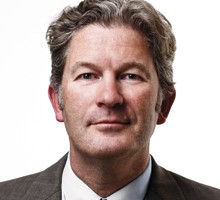 The review of the Organ Tissue Authority should encourage more conversations and trust.
The review of the Organ Tissue Authority should encourage more conversations and trust.
The first time I saw an organ retrieval, the donor was a 19-year-old boy who had died from meningitis, I was shocked and also inspired. The sudden horror, the realisation of the loss, as if a bystander at a terrible car crash, was hard to bear. Dr Bruce Powell
Dr Bruce Powell
I don’t remember his family at all, I don’t know why.
Maybe there was guilt, submerged beneath his relative’s tears drowning the memories, making it possible for me to carry on as a doctor. I felt compelled to follow the donation through to its conclusion, so I went to theatre to witness the giving of the gift his family had agreed to.
Their decision has affected me all my professional life.
The harsh but amazing realities
The team that took that dead boy’s organs was amazing, professional, precise, respectful and tough. It was what the situation merited, that one life must save many lives. Not a trade as such, more a passing of the baton from one existence that had run its course, to others that would be revitalized and redeemed.
I tried not to dwell on the practicalities of the donation because it was a shocking thing to see. Like childbirth, it seemed necessarily brutal in its nature, clinical and painful to watch, yet fascinating and miraculous in its ultimate outcomes.
The impact on my life has led me to the job of WA Medical Director for DonateLife.
Twelve months is a long time in medicine and an eternity in donation circles. Whether it is the advent of new technologies such as the “Heart in a Box” TransMedics device with its amazing use in Donation after Circulatory Death (DCD), or the emergence of new infectious diseases such as the Zika virus to complicate donor suitability decisions, the scene is ever-changing.
Defence a default position
Given the high profile of donation stories and the traditional partisan approach to health as a whole, it is perhaps no surprise that DonateLife and the Organ and Tissue Authority (OTA) are often on the defensive.
Expectations and demand are high and managing and satisfying them can be difficult.
The conclusions of the Government’s recently released review of OTA were broadly sensible, logical and predictable.
What is less predictable is the consequences of the change in CEO and the impact of the new governance committee.
As a fan of “destructive innovation”, I welcome the opportunity to reinvigorate the debate, no matter how painful that might be.
So how did we do?
 Donations in the right direction
Donations in the right direction
The results for 2015 reveal that Australia achieved its highest ever number of donors (435), its highest number of transplants (1241) and we exceeded this year’s annual national target of 18.2 donors per million population.
Crucially, Australia’s donation rate represents a 61% increase from 2009 and a growth rate that compares well with growth achieved by Spain (51%) and the UK (39%) at the same stage of implementing their respective reforms.
In WA 44 donors consented to donation after brain death (DBD) and 10 consented to DCD. This resulted in 42 actual donations compared to 35 in 2014.
So what does the community think of these results?
From the media coverage, you’d be excused to feel confused. Are we the best, the worst, failing, succeeding? Are we wasting money or doing the best we can achieve, learning lessons and moving ever forwards?
In WA we now have organ retrieval occurring in smaller hospitals that have attracted recent State investment.
Fabulous new hospitals such as Rockingham, Joondalup and Armadale-Kelmscott now undertake organ retrieval thereby avoiding the need to transfer donors to a metro hospital.
Our donation numbers are 20% better than last year and no doubt they can be better still.
Trust is the glue
However, it must be always emphasised, DonateLife is simply a partner; the technical, professional and governance part of the team.
Others such as our surgical teams, NGOs, government departments, entrepreneurs, corporate entities, individuals with passion and drive, all play their role.
The vital component, the common denominator that ties them together, is trust. Without trust the sector is doomed to struggle with donation numbers and transplant waiting lists.
DonateLife is merely a partner in this complex ecosystem, an honest broker if you like, guiding and mentoring, listening and empathising with the views of the WA community as to how they want their donation service to work.
Once changes have occurred in Canberra, new leaders and faces will emerge at the donation table. DonateLife can then return to its area of expertise – sharing information with grieving families and helping to support them with the most difficult decision they might ever have to make – agreeing to save others’ lives through the gift of donation.
ED: The Ernst & Young review into the Organ Tissue Authority was released last month after sitting with the Government since early September. It reported that OTA management was generally sound but defensive. It recommended a new board of governance. The CEO Yael Cass has stepped down to be replaced by health bureaucrat Felicity McNeill in an acting position. While Ms Cass’s departure comes at the end of her five year contract, there has been no response from the department when asked if her resignation has anything to do with the release of the report.

